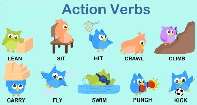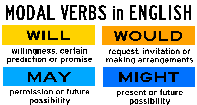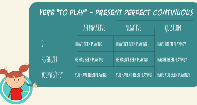Change Avatar
Verb Conjugation
Verb Conjugate
In the English language, you must conjugate a verb from its infinitive form to have an action take place. To conjugate a verb means to make it agree with the subject and in the appropriate tense, or when the action is happening.
How Do You Conjugate a Verb?
In the English language, you must conjugate a verb from its infinitive form to have an action take place. To conjugate a verb means to make it agree with the subject and in the appropriate tense, or when the action is happening.
Infinitive form of a verb, beginning with the word to.
to + base form of the verb
For example: to be, to walk, to run, to sneeze, to think
Person Categories in English
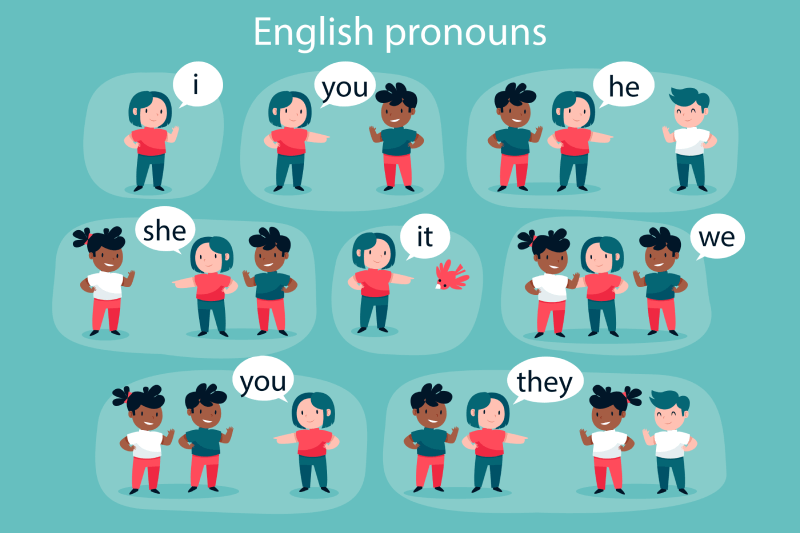
When conjugating, you add a suffix to the infinitive form to match the subject, and drop the word to. But you must also make the verb form fit the subject.
In English, there are six different person categories. We speak in singular and plural forms of three different subjects: first person, second person, and third person.
| Person | Singular | Plural |
|---|---|---|
| First | I | We |
| Second | You | You (group) |
| Third | he/she/it | they |
In general, with standard conjugation, the only time you add a suffix is in the third person singular form of the verb - He/she/it.
Here is an example of a common simple present tense conjugation of the verb to walk.
| TO WALK | ||
|---|---|---|
| I | walk | We walk |
| You | walk | You walk |
| He/She/It | walks | They walk |
You can see here that the only time we needed to add a suffix in the present tense form of TO WALK was when we added the -s to the third person singular form - walks.
Verb Tenses & Conjugation
In addition to the six persons, there are also 12 different verb tenses that are used to conjugate verbs, each signifying a different time or state when the action or being took place.
In general, there are two additional suffixes that are added as the tense changes: -ED and -ING.
When do you add -ED?
-ED is added to the verb in the following tenses:
Simple Past I walked
Present Perfect I have walked
Past Perfect I had walked
Future Perfect I will have worked
When do you add -ING?
-ING is added to the verb in the following tenses:
Present Continuous I am walking
Past Continuous I was walking
Future Continuous I will be walking
Present Perfect Continuous I have been walking
Past Perfect Continuous I had been walking
Future Perfect Continuous I will have been working
Other common endings in English include -D and -IED, which are added based on the spelling of the infinitive form of the word.
Past Tense Conjugation Rules
In the English language, you must conjugate a verb from its infinitive form to have an action take place. To conjugate a verb means to make it agree with the subject and in the appropriate tense, or when the action is happening.
Here are some general rules to follow for conjugating into the PAST TENSE:
1) If the infinitive ends in a consonant, add -ED.
to paint paint + -ED She painted on canvas.
2) If the infinitive ends in a short vowel + consonant, double the consonant and add -ED
to step step + p + -ED The dog stepped over the cat.
3) If the infinitive ends in an -E, add -D.
to bake bake + -D He baked a pie.
4) If the infinitive ends in a -Y, drop the Y and add -IES or -IED
to dry dr- + -Y The student dried the dishes.
5) If the infinitive ends in -AY, drop the Y and add -ID
to say sa- + -id She said she would return in one hour.
6) If the infinitive has a double vowel, change it to a single vowel.
to choose choose He chose to stay.
7) If the infinitive ends in -EEP, drop the -EEP and change it to -EPT.
to sweep sw + -ept She swept up the hair.
8) Some verbs just change their vowel.
to know knew He knew she was right.
to sing sang We sang all day long.
to come came She came to the party.
Irregular forms
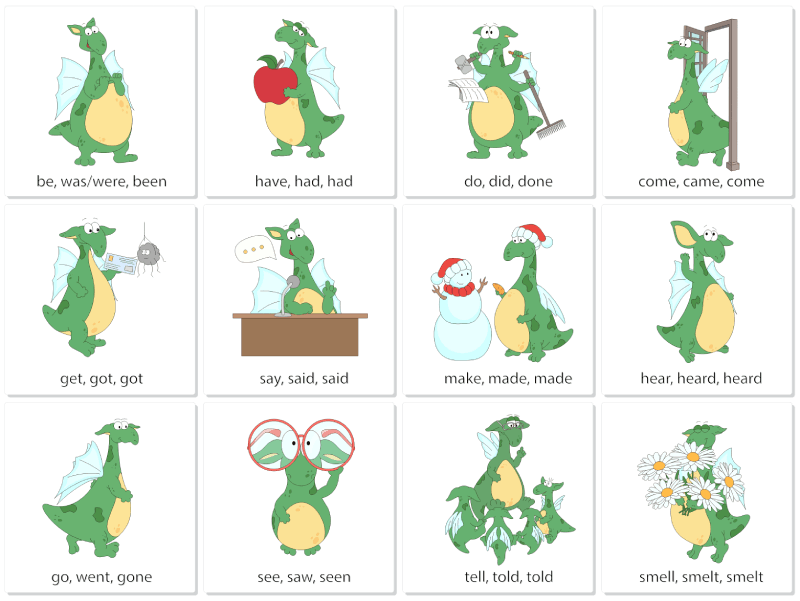
As always, because English is so influenced by other languages, there are always some irregular forms that only make sense if you’ve studied the etymology of the word. For most people, you just have to memorize it.
Here are some common irregular verbs:
| INFINITIVE | SIMPLE PAST | PAST PARTICIPLE |
|---|---|---|
| to be | was/were | been |
| to bend | bent | bent |
| to bet | bet | bet |
| to bring | brought | brought |
| to build | built | built |
| to catch | caught | caught |
| to choose | chose | chosen |
| to cost | cost | cost |
| to cut | cut | cut |
| to do | did | done |
| to eat | ate | eaten |
| to feel | felt | felt |
| to fight | fought | fought |
| to find | found | found |
| to fly | flew | flown |
| to freeze | froze | frozen |
| to go | went | gone |
| to grow | grew | grown |
| to have | had | had |
| to hear | heard | heard |
| to hide | hid | hidden |
| to lead | led | led |
| to leave | left | left |
| to lie | lay | laid |
| to lose | lost | lost |
| to make | made | made |
| to read | read | read |
| to ride | rode | ridden |
| to see | saw | seen |
| to seek | sought | sought |
| to sell | sold | sold |
| to shake | shook | shaken |
| to spread | spread | spread |
| to steal | stole | stolen |
| to swear | swore | sworn |
| to teach | taught | taught |
| to think | thought | thought |
| to tell | told | told |
| to wear | wore | worn |
| to write | wrote | written |




